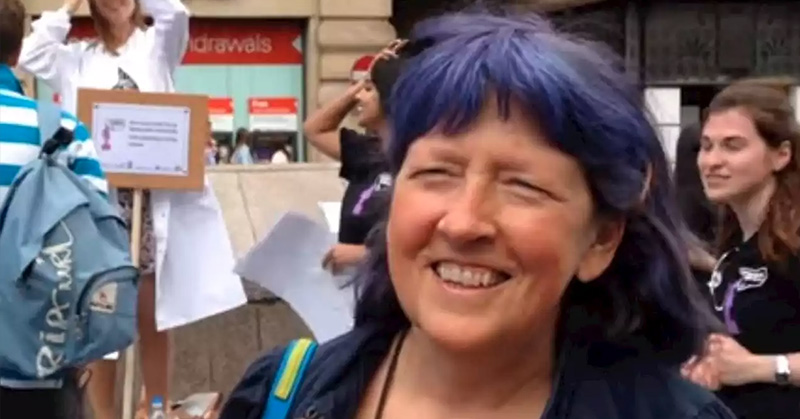What would you do with $1 139 000? Take a trip? Buy a house or a fancy car? One professor in the UK donated hers to charity.
A Scientific Breakthrough, A New Charity
A team of scientists at Newcastle University worked for thirty years to develop Rubraca, a drug that has been approved by the NHS for ovarian cancer [1]. The University sold royalties for the drug for 31 million pounds (nearly $41 million USD).
Research team member, Professor Nicola Curtin, used her share of the profits, which totaled 865 thousand pounds, to establish a new charity called the Curtin PARP (Passionate About Realizing Your Potential) Fund [1].
The Drug
So what exactly does Rubraca do? Rubraca is a PARP inhibitor. PARP (poly ADP ribose polymerase) is a protein that helps repair DNA when it becomes damaged. By blocking this protein, Rubraca keeps cancer cells from repairing their damaged DNA and causes them to die [2].
The drug was developed to help individuals who carry the BRCA gene [1]. BRCA stands for BReast CAncer gene [3].
Normally, this gene actually suppresses the growth of breast cancer tumors, however, there is a small percentage of people who carry a mutated version of the gene called BRCA1 or BRCA2. This mutation causes the gene to be ineffective, leaving those individuals at an increased risk of developing cancer [3].
You may remember when this gene made headlines. In 2013, actress Angelina Jolie found out that she carried the BRCA1 gene and made the decision to have surgery to reduce her chances of getting breast cancer [4].
With this new drug, carriers of the faulty gene may have another, non-surgical option to reduce their risk of developing the deadly disease.
Related: Angelina Jolie’s Discusses Her Decision to Remove Her Ovaries
The Charity
Of course, a break-through discovery such as this is going to garner a lot of attention- and generate a lot of money. Professor Curtin wanted to pay it forward.
The Curtin PARP Fund aims to help individuals realize their potential in life.
“This journey has made me reflect on my own life, and it seems wrong for me to benefit from this financially. I’m proud that this research will change lives, and I have everything that I need in life – a good job, a loving family, a nice house, but in society, there are many who do not have this,” explained Curtin [5].
The fund will support a variety of activities to help people overcome barriers to employment or education by developing skills, talents, and increasing confidence, Priority will be given to minority groups, ethnic people and homeless people [5].
“I know first-hand that people are capable of amazing things, but society sometimes doesn’t always allow people to reach their full potential. So, through the Curtin PARP Fund at the Community Foundation, I want to leave a lasting legacy that will change lives for the better.” [5]
Professor Curtin established the fund through the Community Foundation Tyne and Wear and Northumberland, which is a charity that helps match generous donors with local causes [5].
Through the charity, the fund will be able to support individuals with grants of up to three thousand pounds (nearly $4000 USD). The first round of applications just closed on December 2, but will reopen mid-January. Applications will operate on a rolling basis, so any application will be considered at any point during the year [5].
For more information, visit https://www.communityfoundation.org.uk/apply.
Read More:
If You Notice Any of These 6 Signs, Don’t Ignore Them- They Could Be Early Signs of Breast Cancer
10 things you can do right now to potentially cut your breast cancer risk in half
Sources
- https://www.independent.co.uk/life-style/women/cancer-drug-ovarian-science-nicola-curtin-newcastle-university-charity-a9220506.html
- https://www.rubraca.com/ovarian-cancer/how-rubraca-works
- https://www.nationalbreastcancer.org/what-is-brca
- https://scienceblog.cancerresearchuk.org/2013/05/14/angelina-jolie-inherited-breast-cancer-and-the-brca1-gene/
- https://www.ncl.ac.uk/press/articles/latest/2019/11/curtinparpfund/

